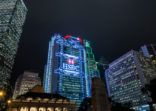“We think a recession is likely in the next 12-18 months and it is likely to start in the US and historically, a US recession has been a global recession,” said Poole, CIO at Oreana Financial Services.
“Equities, high yield credit, even investment grade credit are not priced for that, so we’ve underweighted risk in client portfolios.”
Possible triggers for a global downturn include geopolitics, growth potential in the US falling more than expected, trade uncertainty and Brexit in the UK.
“There are a lot of things to concern asset allocators. You would need to have a very positive view on the global outlook the next five years to justify current valuations.
“We’re concerned about a sudden and material shift in market pricing to reflect those concerns. We’re positioned for that reality and it could be even worse than we think.”
Moving underweight
The firm, which has almost all discretionary clients, has set allocation with “a tilt toward the highest quality government debt we can own, a tilt away from equities, and a meaningful tilt away from high yield credit”, Poole said.
He is avoiding Asian high yield in particular and global high yield in general because he believes the spreads are not justified by the fundamental outlook.
If the firm’s fundamental view of a global downturn in 12-18 months unfolds, “the riskier parts of the credit spectrum will suffer,” he said.
“An important part of what we’re grappling with is explaining to clients that not all fixed income is defensive,” Poole said.
“A view has built up since 2008 that it is. But go back to 1998 in Asia or 2001 in the US, and high yield credit was not defensive in any sense. Positive returns during those times came from high quality sovereign debt and for me that’s US treasuries.”
In equities, the firm went underweight in March after buying during last December’s plunge and cashing in. Currently, China and the US are underweight in client portfolios. But relative to the global equity allocation, US equities are overweight, he said.
“Historically there’s been US equity managers who provide reasonable downside capture. So we’ve taken defensive equity positions in the US and moved away from high beta plays in Asia and China. When there’s a downturn, those are the ones going to get hit in an absolute sense.”
Seeking funds
Given the firm’s outlook, Poole said he’s looking for certain types of funds.
“It’s difficult to get access to the type of beta we want. Sovereign government bond funds are out of favour. Yields have been low for a long time, returns have been low relative to historical averages because yields are low.”
Liquid alt funds are also sought. “We’re aware liquid alts won’t have a negative correlation to equity beta, we’re just looking for low correlation, where you can park some money if there’s a downturn and it’s going to perform significantly better than equity beta.”
Oreana uses quant funds, particularly factor-based or smart beta. “The academics behind them have a reasonable history though the track record of some funds is short.
“We do engage with smart beta or alternative risk premia funds. Not to drive outsized returns but to provide diversified exposure to equities and credit in which most people are structurally overweight.”
Thematic funds are different. He prefers only the long-term themed products that have a sustainable risk premia and that integrate ESG into the investment process, a preference similar to that of UOB and DBS private banks.
“We have less confidence in thematic funds that take a small niche subset of a theme, for example, mobility or water storage funds. These are very narrow universes that means they are likely to be more inefficient.”
He added that ESG is starting to be noticed by clients.
“We talk about it a lot and try to engage clients. We’re starting to see ESG interest from both top down and bottom up.
“It’s the very big asset owners who can help drive this – sovereign wealth funds, pensions funds – because they work with the fund houses and believe in long-term sustainable returns,” Poole said.

















